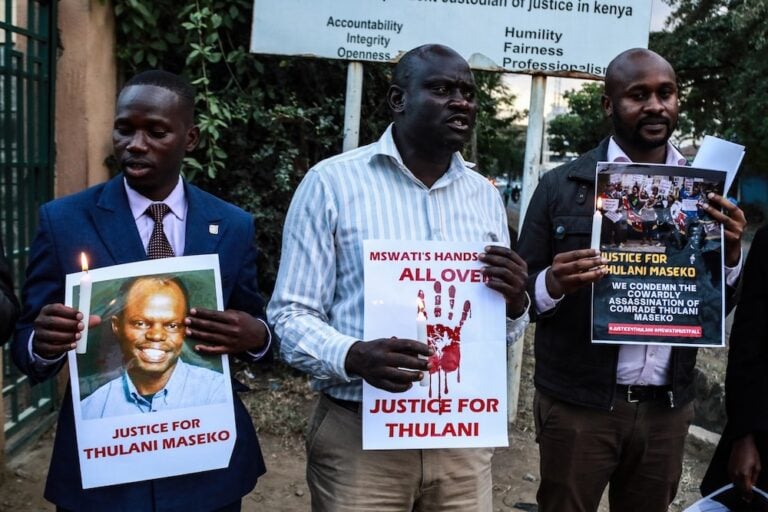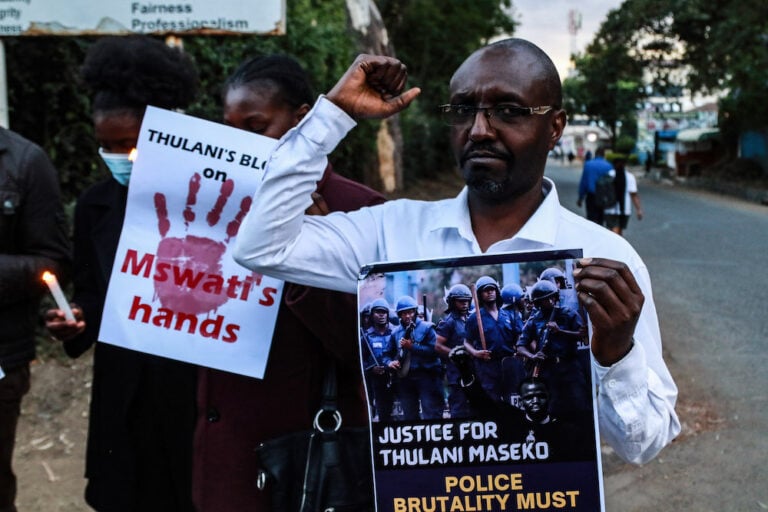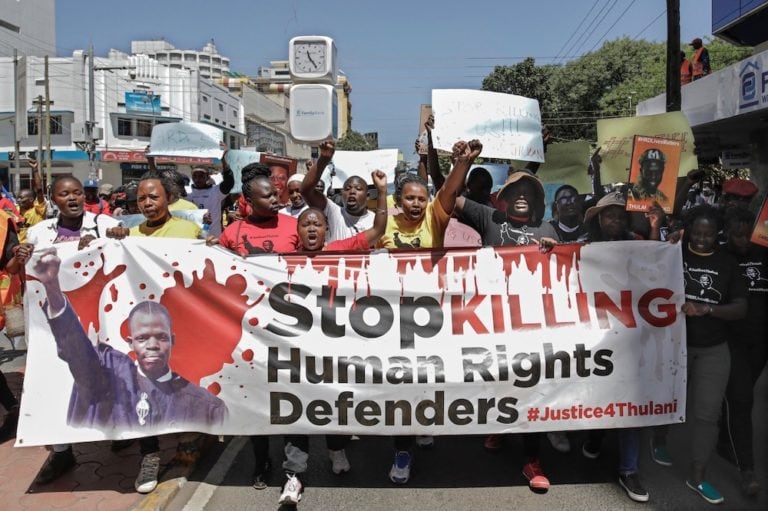(MISA/IFEX) – On 10 October 2007, “Sunday Times” editor Mbongeni Mbingo was cleared of contempt charges brought against him by the House of Assembly. The Select Committee found that the editor did not in any way abuse freedom of the press, but was legitimately expressing his journalistic opinion. His right to do so is enshrined […]
(MISA/IFEX) – On 10 October 2007, “Sunday Times” editor Mbongeni Mbingo was cleared of contempt charges brought against him by the House of Assembly.
The Select Committee found that the editor did not in any way abuse freedom of the press, but was legitimately expressing his journalistic opinion. His right to do so is enshrined in the Constitution of Swaziland under the Bill of Rights, Section 24 “The Protection of Freedom of Expression”.
In July 2007, in the view of some Members of Parliament (MPs), Mbingo had acted in contempt of Parliament when he criticised the Speaker and House of Assembly for blocking a recent motion by another MP, who sought to question an alleged secret move by Cabinet and traditional authorities to amend certain clauses in the Constitution without the knowledge of the nation.
A five-member Select Committee was appointed to investigate the editor and his newspaper for alleged contempt of Parliament with a view to taking punitive measures against him or the publication. If found guilty, Mbingo would have faced a maximum of two years in jail or a E4000 (approx. US$600) fine, according to recently amended Parliament Standing Orders.
On 24 July, MISA Swaziland was summoned and appeared before the Select Committee of the Parliament of Swaziland in defence of Mbingo’s right to express himself and make his opinion known.
MISA Swaziland’s director, Comfort Mabuza, sees the committee’s judgement as a milestone for the Swaziland chapter of MISA and other senior journalists who had to come face to face with the Select Committee.
“Indeed, our advocacy agenda, as well as our resolve to educate the members of Parliament on freedom of expression, is bearing fruits. We are equally delighted about this breakthrough.”
Mbingo has expressed his joy and declared it “a victory for the noble profession of journalism”.
“I’m not trying to be a hero, but I’m happy with the verdict. My conscience was clear that I had not stepped on anyone’s toes, but I was expressing my opinion”, he said.
At the time of the reported incident, MISA pointed out that parliamentary privilege does not – and, in a democracy, cannot – regulate the media or seek to dictate editorial content and policy in relation to parliamentary proceedings or otherwise.
In order to promote and secure the enjoyment of freedom of expression and other fundamental human rights by the people of Swaziland, MISA appealed to the House to commit forthwith to the following reforms, and seek to ensure their expeditious entry into the statute book:
a. Enact legislation to enable live broadcasting and telecasting of debates and proceedings of the House and its Committees, except where confidentiality is required in line with international best practices;
b. Repeal the provisions of the Standing Order (as amended) relating to punishment by Parliament for breach of privilege and contempt so as to bring the Swazi law in line with the modern practice of the House of Commons and other parliaments.


